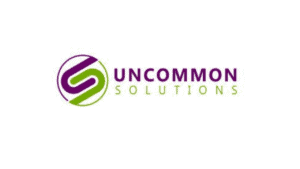Achieve Unprecedented Success: Navigate the Five Stages of Misconceptions to Close More Sales!
As a forward-thinking professional, you understand that growth and adaptability are crucial to succeeding in the ever-evolving sales landscape when your goal is to close more sales. However, sales training may bring about mixed emotions and reservations. In this article, we will explore the five stages you may encounter when contemplating sales training, helping you gain insights into your thought process and providing a roadmap for embracing the potential benefits of working with a competent, trustworthy sales consultant.
It’s important to note that the order and significance of these categories can vary from person to person. Individuals may prioritize and consider these factors in different sequences based on their unique perspectives and circumstances.
1. Lack of Trust
Trust forms the bedrock of any successful partnership. When considering sales training, it is not uncommon to harbor skepticism toward salespeople and consultants. Past negative experiences, spending valuable resources on ineffective sales training, or doubts about the expertise and intentions of those offering training can create a barrier. Recognize that trustworthy sales training companies with a long list of satisfied clients exist that genuinely aim to enhance your skills and drive success. Open and transparent discussions will help establish trust and pave the way for valuable collaboration.
Five questions to establish a connection and build trust
- “Can you share specific examples of successful outcomes from your sales training programs with other clients similar to our organization?”
- “What methods do you use to customize your sales training to align with our company’s unique goals and challenges?”
- “How do you ensure transparency and open communication throughout the sales training process?”
- “How do you approach potential failure or setbacks in the training process, and what support do you offer to remedy such situations?”
- “What ongoing support or follow-up is provided after the completion of the sales training to ensure continued growth and success?”
2. Resistance to Change
Change can be intimidating, even when the need for it is evident. You may resist sales training during this stage due to ingrained beliefs or practices. Perhaps you have an unhealthy view of sales, perceiving it as pushy or manipulative. Or maybe you have relied on traditional methods of hiring more people to solve your sales issues without exploring a sales hiring process that can help you find the kind of talent who can close more sales. Acknowledging the need for change and being open to new approaches can empower you to break free from stagnation and propel your sales performance forward.
Seven questions to ask a sales training company to address your concerns on successfully guiding your team through change
- “How do you approach and manage resistance to change within a sales team during the training process?”
- “What strategies do you employ to make the transition from traditional sales methods to more modern approaches smooth and effective?”
- “How does your sales training emphasize the value and ethics of sales, moving beyond the perception of it as pushy or manipulative?”
- “Can you describe the specific tools and methodologies you use to identify and develop talent that resonates with our company’s goals?”
- “What ongoing support and mentorship do you provide to ensure that the change is sustainable and that our team continues to thrive?”
- “How will your sales training align with our company’s unique culture and values while introducing new practices?”
- “What assessments or diagnostics do you perform to understand our specific sales challenges and tailor your approach accordingly?”

3. Perceived Inefficiency or Ineffectiveness
In this stage, you may question the value and effectiveness of sales training. It’s natural to doubt whether it can truly address your specific sales challenges. However, it’s essential to recognize that well-designed training programs have a track record of success. By showcasing case studies and success stories, reputable sales consultants can demonstrate how tailored solutions have helped businesses like yours achieve remarkable improvements in their sales performance. Open yourself up to exploring how training can unlock your untapped potential.
Five questions tailored to address concerns of perceived sales training ineffectiveness
- “Can you share specific case studies or success stories that demonstrate the effectiveness of your sales training in addressing challenges similar to ours?”
- “How do you tailor your sales training programs to address our unique sales challenges and ensure that they are relevant to our industry and market?”
- “Can you explain the methodology behind your sales training program and how it remains current with changing market trends?”
- “How do you ensure that the time and resources invested in sales training translate into tangible improvements in sales performance?”
- “How do you collaborate with us to ensure that the sales training is integrated seamlessly into our existing processes and enhances rather than disrupts our workflow?”
4. Reliance on Intuition
Trusting your gut instincts has merits but can also limit your growth potential. During this stage, you may rely solely on intuition or selectively look at historical data supporting your current approach. However, sales training offers evidence-based methodologies and strategies beyond intuition alone. By embracing data-driven insights and learning from experienced professionals, you can refine your sales techniques, make more informed decisions, and unlock new levels of success.
Five questions to affirm or challenge your intuition and help embrace an evidence-based approach
- “Can you demonstrate how your evidence-based methodologies differ from traditional or intuitive approaches and how they’ve led to success?”
- “How do you use data-driven insights to customize your sales training programs to fit our specific needs and industry landscape?”
- “How do you approach leaders who rely heavily on intuition and guide them towards embracing more structured, data-driven sales techniques?”
- “What ongoing support or coaching do you offer to help leaders continue to hone their intuition while incorporating new skills and insights?”
- “How do you ensure that your sales training program doesn’t override our company’s culture or values but rather enriches and aligns with them?”
5. Contentment with Current Performance
You may wonder why you should invest in sales training if you are currently meeting your sales goals and are content with your performance. This stage of contentment is a testament to your achievements but should not hinder your drive for continued growth. Even high-performing individuals and teams have room for improvement. Sales training can take your success to new heights, helping you refine your skills, overcome obstacles, and achieve unprecedented results. Embrace the mindset of continuous improvement and strive for excellence in every aspect of your sales journey.
Six questions to explore additional growth and excellence and complement your current success
- “How can your sales training help us identify hidden opportunities or overlooked areas of improvement even when we’re performing well?”
- “Can you provide examples of how you’ve helped other high-performing teams reach new levels of success through targeted training?”
- “What strategies do you employ to ensure that sales training does not disrupt our current success but builds upon it to achieve even greater results?”
- “How do you tailor your training programs to match the specific strengths and areas of potential growth for our already successful sales team?”
- “What are the most common challenges or obstacles faced by high-performing sales teams, and how can your training help us proactively address them?”
- “Can you explain the long-term benefits of investing in continuous improvement through sales training, even when current goals are being met?”
Is Sales Training Right for Your Company?
By understanding the five stages you may encounter when contemplating sales training, you gain valuable insights into your thought process. Trust, change, perceived inefficiency, reliance on intuition, and contentment are all factors to consider as you embark on professional growth. Be open to exploring new possibilities, engage in transparent discussions with reputable sales consultants, and embrace the transformative power of sales training. By doing so, you equip yourself with the tools and knowledge needed to excel in the ever-changing sales landscape, achieving remarkable success and surpassing your goals. Embrace the opportunity for growth, and let sales training propel your company forward. Let’s close more sales!








